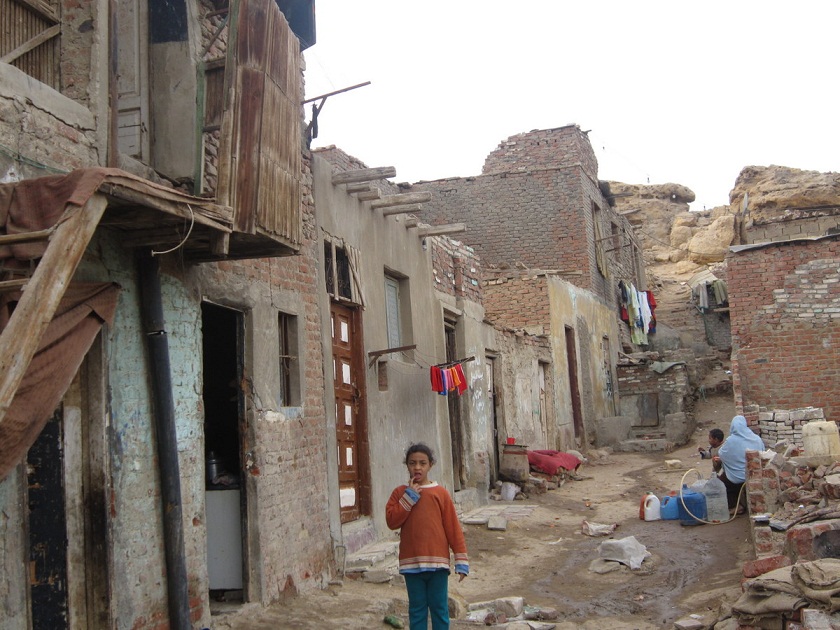
(Photo by Sarah El Masry/DNE)
The World Food Programme (WFP) issued a summary report on the state of poverty and food security in Egypt, prompting the Egyptian Initiative for Personal Rights (EIPR) to express concern about its findings.
The report highlighted an increase in the prevalence of food insecurity in Egypt, with 13.7 million people suffering. According to EIPR the data, which was compiled for the period of 2009-2011, is worrying and likely lower than reality, as the economic crisis gripping Egypt over the past two years has led to increased rates of poverty, unemployment and marginalisation.
The data covers 2009 as it is the latest complete compilation of data in Egypt.
By 2011, the WFP report highlighted an estimated 15% of urban populations in Egypt are living below the poverty line, up from 11%in 2009.
Another point highlighted by the EIPR was the root causes of food insecurity in Egypt; namely that the fluctuation of food prices, despite government regulation, combined with low salaries mean many families spend half their income on food and cannot afford to allocate larger budgets.
The WFP was also critical of the subsidy system. Recognising its alleviating effect on 68% of the population, the report also said 19% of families most in need do not benefit from it.
EIPR said there are obvious signs of economic deterioration in Egypt and, despite this, politicians insist on “making rosy statements regarding the food security situation in the country.”
On 19 June, the World Food Program concluded Egypt lost $3.7bn in 2009 to the effects of child malnutrition. According to the study, Egypt loses “significant sums of money each year as a result of child undernutrition through increased healthcare costs, additional burdens to the education system and lower productivity.”
The report, titled The Cost of Hunger in Africa: The Social and Economic Impact of Child Undernutrition in Egypt, found that 40% of adults in Egypt are stunted, representing “more than 20 million people of working age who are not able to achieve their potential, as a consequence of child undernutrition.”
“In rural Egypt, where most people are engaged in manual activities, it is estimated that in 2009 alone, a value of EGP10.7bn of economic productivity was lost due to lower physical capacity by those who were stunted as children,” WFP concluded.
Illnesses linked to child undernutrition estimated the health cost in 2009 stood at EGP1.2bn, and more children are stunted today than ten years ago, according to Egypt’s Demographic Health Survey between 2005-2008.
The study was undertaken in Egypt by the cabinet’s Information and Decision Support Center (IDSC) in collaboration with the United Nations World Food Programme (WFP), the African Union Commission and the United Nations Economic Commission for Africa. “Data vital to the development of the study was provided by the Central Agency for Public Mobilization and Statistics, the Ministry of Health, and the Ministry of Education in Egypt,” the report read.
“Food security is at the top of the agenda of the Egyptian government after the revolution of 25 January 2011. The provision of adequate and nutritious food for children is the most important aspect to ensure that children are healthy, able to learn, work and give back to society,” said the Head of the IDSC Dr Yasser Ali. “Human capital is the backbone of Egypt’s future development, especially since 31% of Egypt’s total population is below the age of 15 years, which presents a human wealth that should be used well.”



